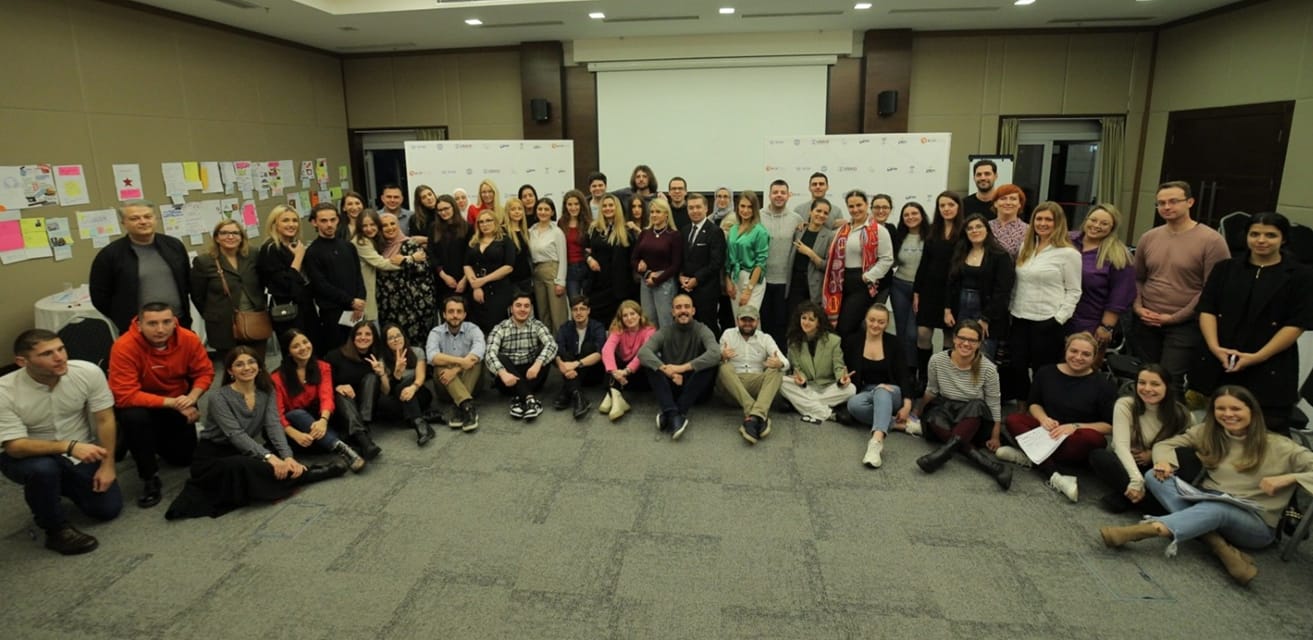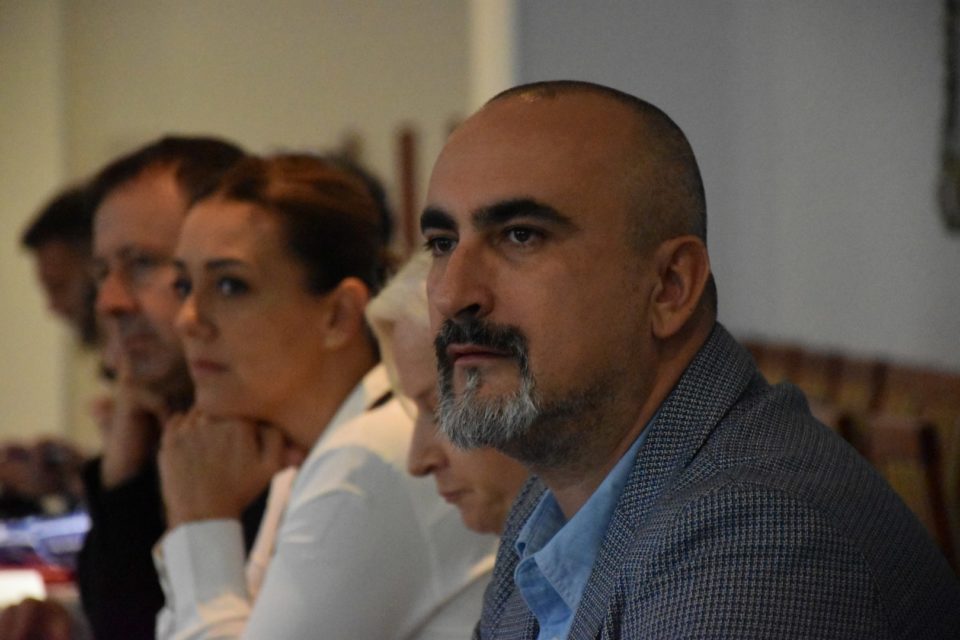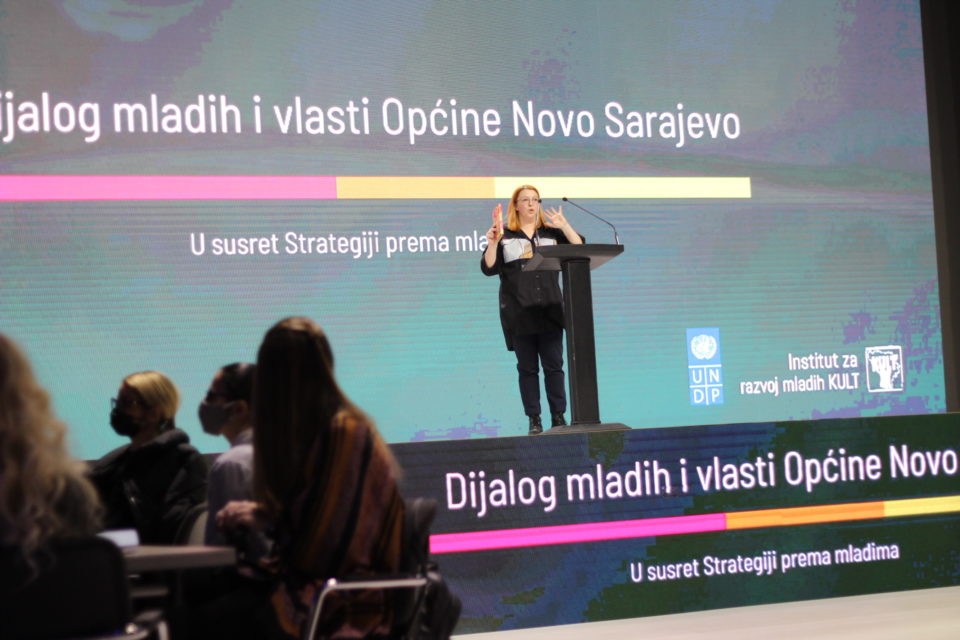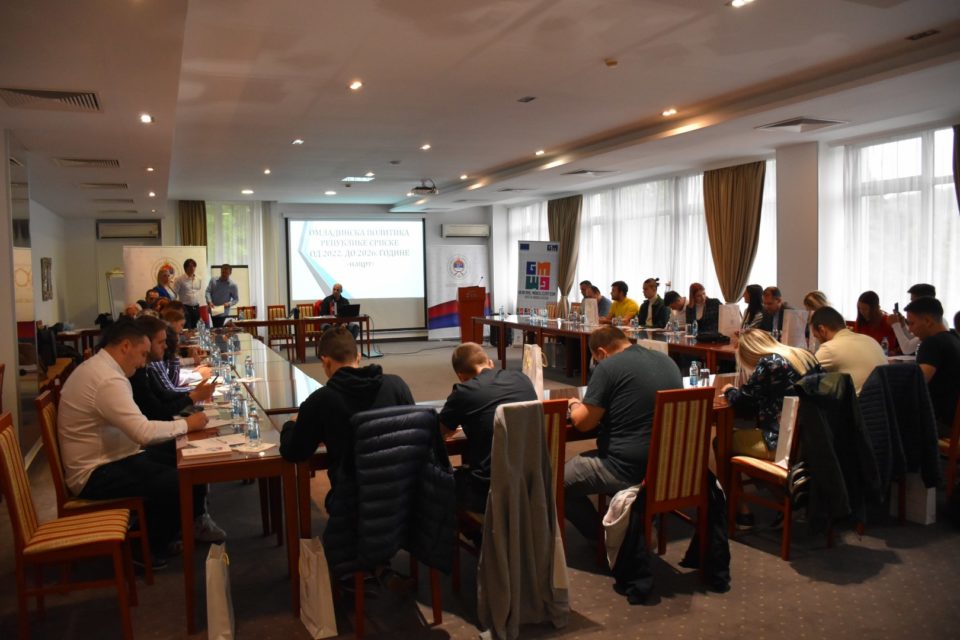
Phrases like “the world is left to the young” and “young people are the future of this country” are heard on a regular basis, but the problems young people face in Bosnia and Herzegovina (BiH) are not abating and there is a wide range of them, from the education system and unemployment to healthcare and other services.
To improve the situation for young people in the country, current laws as well as new laws and youth-centric policies need to be implemented in a way that engages young people themselves, and adequately funded. So far, this is a rarity.
The position of young people in BiH is extremely complicated, according to Jasmin Jašarević, General Manager of the PRONI Center for Youth Development. He says that critical issues, such as education, healthcare, and housing, are further complicated “when, in addition to all these issues, young people have to solve or deal with issues of corruption, nationalism (and other ‘isms’), security, and uncertainties that are a constant threat to their well-being during their entire upbringing.”

“Young people in Bosnia and Herzegovina spend their youth in a constant, never-ending crisis that continuously affects and shapes their lives, and I must say that it’s certainly not easy to be a young person in Bosnia and Herzegovina,” Jašarević notes.
Jasmina Banjalučkić, Head of the Youth Policy Development Department of the KULT Institute for Youth Development, acknowledges that young people face numerous challenges, beginning with education, employability, starting a family, access to various social and health services, and ending with political or activist engagement. She adds that there are many things that young people themselves identify as negative, underdeveloped, insufficient, and problematic in the country.

According to the data of the BiH Ministry of Civil Affairs, the country is home to about 777,000 young people between the ages of 15 and 30, which is almost 20 percent of the total population. Unemployment and the impossibility of economic independence, education that does not keep pace with the labor market, the inadequate healthcare system, lack of institutional support for young and ambitious people, nepotism, and the inconsistency of youth policies are just some of the problems faced by the country’s young people.
“Long-term neglect of the needs of young people, non-inclusion of young people in decision-making processes, as well as non-compliance with legal provisions has put us in a situation where young people lose confidence in the system, which they consider corrupt,” explains Banjalučkić.
According to research by the KULT Institute, young people rank corruption as their fourth greatest concern, after unemployment, inflation, and the overall economic situation.
“Something is Always Missing”
The complexity of youth policy in the country is proportional to the complexity of the administrative-territorial organization of post-Dayton BiH. The rights, obligations, and status of young people are defined by legal decisions which vary according to where they live.
Today, there are three laws on youth on the territory of BiH – one in the Federation of BiH (FBiH), one in the Republika Srpska (RS), and one in the Brčko District. Although all three laws provide for the establishment of a youth commission as a permanent working body made up of youth representatives, a significant number of institutions have still not fulfilled their legal obligations.
Jašarević explains that many levels of government have the opportunity to work in the interest of young people and what’s more, it is their responsibility and their legal obligation. Unfortunately, however, it is only in rare cases that laws for and about young people are respected in their entirety. Something is always “missing.”
“If there’s a law, there’s no strategy or youth policy. If there are laws and strategies, there’s no action plan. If there’s a law, a strategy, and an action plan, there’s no funding, because there’s always some sort of crisis, or there simply aren’t any funds allocated in the budget at all for solving problems and providing solutions to young people’s issues,” Jašarević said.
All three Laws on Youth in Bosnia and Herzegovina call for the existence of a youth strategy or policy, engaging young people in decision-making, which entails the involvement of young people in youth commissions at all levels, youth officers in all institutions dealing with issues that affect young people, and budget allocations for youth projects as well as other financial allocations for young people.
“Currently, at the entity level, only the Republika Srpska entity has a law and strategy for young people. The Federation of Bosnia and Herzegovina has a law but no strategy. The state of Bosnia and Herzegovina has neither a law nor a strategy, and budgets for young people are almost non-existent,” explains Jašarević.
Improving Living Conditions for Young People
According to Banjalučkić, we rarely see institutional interest in the process of implementing youth laws, which certainly doesn’t help with the implementation of policies. Even though there are positive practices in local communities throughout Bosnia and Herzegovina that are working and investing in youth programs, the results of these investments are still not visible.
This year, the Youth Policy of the Republika Srpska 2023-2027 was adopted as an integrated, multi-sector, strategic document which defines public policies and directs development in all areas of importance for young people. Through the realization of strategic goals and priorities, this document has the potential to improve living conditions for young people and create the necessary environment for them to stay and prosper in the RS.

Twenty-nine-year-old S.M., an activist and lawyer from the RS, says that the goals of the Youth Policy 2023-2027 are well thought out and written. He points out that the previous youth policy was also well thought out, but young people didn’t actually experienced any improvements from it once it came into force.
When it comes to the state level, there are no legal provisions regulating the youth sector and thus no unified state policy towards young people.
Existing laws and youth policies are similar in many ways. They set out young people’s rights and obligations pertaining to their political organization, institutional engagement, and participation in decision-making processes, as well as other issues impacting their lives, social status, and activities. However, experts believe that for such regulations to be truly effective, young people need to be directly involved in their creation.
“Policies concerning young people should by no means be the product of someone’s personal opinion about what young people need. The development of these policies must incorporate the views of young people and must be based on the real needs of this population. Otherwise, even if policies are formulated, they don’t have much influence in bringing about positive change,” Banjalučkić argues.
Because Bosnia and Herzegovina is not a member of the EU, Banjalučkić says that participation in many European programs is difficult. However, the country still participates in certain programs, such as ERASMUS+, Youth in Action, and European Solidarity Corps. The aim is to support efforts towards European integration through the exchange of best practices, experience, and knowledge.
Jašarević says that all of us as individuals and society as a whole must ensure that both BiH entities and the Brčko District, as well as all municipalities and cities, are places where young people can achieve their individual potential and lead lives of dignity. “For that to happen, we all have to understand what the problems are that young people face, how they arose, and what unresolved issues the youth of Bosnia and Herzegovina have,” concludes Jašarević.
This article is part of a series of texts within the #EmployMe project of the Post-Conflict Research Center and Balkan Diskurs. The series aims to raise awareness about the problems that young people face in the field of education and employment in BiH and highlight some good practices in battling these obstacles. This series is part of the “Youth Retention Program in BiH – Opšta Mobilizacija,” implemented by the Nešto Više Association and PRONI Center for Youth Development, with support from the Delegation of the European Union to BiH.






